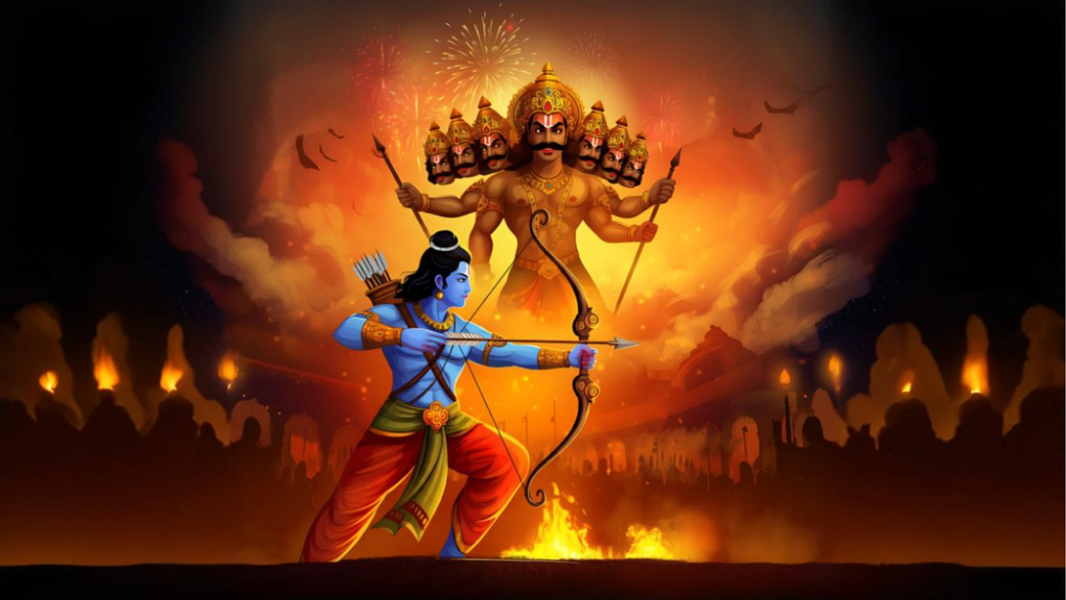In today’s hyper-competitive world, career choices are rarely made in a vacuum. Whether it's parental pressure, peer comparison, financial anxiety, or societal norms, many of us find ourselves at a crossroads, being unsure whether we are choosing from a place of clarity or simply reacting to noise.
And what is the result? Degrees that are pursued without interest, jobs that are accepted without alignment, and lives lived in quiet resignation.
But what if there’s another way to approach this crossroad? A way that doesn’t just focus on job security or prestige, but one that brings swasthya, that is, inner well-being, wholeness, and alignment.
The Vedic tradition offers such a path. Rooted in timeless insights, it views work not as a mere economic activity but as an expression of one’s true nature and a vital component of spiritual evolution. It asks us not just what we want to do, but why, for whom, and with what inner alignment.
Svabhava and Svadharma: The Twin Pillars of Vedic Career Wisdom
At the heart of Vedic thought lie two foundational ideas:
-
Svabhava – one’s inherent nature, temperament, or energetic makeup.
-
Svadharma – one’s unique path or duty, derived from that inner nature.
The Bhagavad Gita puts this with piercing clarity:
“It is better to fail in one’s own dharma than to succeed in another’s.”
— Bhagavad Gita 3.35
In modern terms, this wisdom is a radical invitation to stop mimicking success formulas and start honoring inner design. You might be praised for being a good doctor, but if your natural inclination lies in art or technology, the praise can feel hollow.
When we ignore svabhava and chase borrowed ideals, life begins to feel heavy even if we appear “successful.” But when svadharma is embraced, we find ourselves in flow. Decisions feel intuitive. Challenges feel worthwhile. And life begins to unfold with more ease than effort.
From Resume to Rhythm: Asking Deeper Questions
In the rush to build resumes, we often skip the rhythm of reflection. But Vedic wisdom encourages us to pause and ask:
-
What energizes me vs. what drains me?
-
What kind of problems am I naturally drawn to solve?
-
When do I feel most aligned mentally, emotionally, and spiritually?
-
What would I still pursue, even if success wasn’t guaranteed?
These are not indulgent questions, rather, they’re questions of dharma. They’re the foundation for building a life that’s not just impressive on paper but nourishing to live.
They’re especially relevant when you find yourself wondering, “Should I quit my job?”
The Vedas would reframe that to “Is my job aligned with who I truly am?”
If the answer is consistently no, the real question becomes, “Should I leave my job to find something that reflects my svabhava?”
Passion vs. Stability
One of the most common career dilemmas is the perceived tug-of-war between passion and stability. Parents want their children to be “settled.” Young adults seek “meaning.” Often, the two seem irreconcilable.
But the Vedic approach doesn’t force you to choose one over the other. Instead, it reframes the question:
How can your unique svabhava contribute meaningfully to the world and in doing so, also create a stable life?
For instance, a person with a deeply analytical nature might thrive in roles ranging from finance to research to social impact data analytics. The outer form can shift, but the inner nature remains the compass.
When you operate from svabhava, you gain clarity on where to plant your energy so that it naturally bears fruit.
Action Without Anxiety: The Power of Detached Excellence
Another cornerstone of the Gita’s career guidance lies in this verse:
“You have the right to action, but never to its fruits.”
— Bhagavad Gita 2.47
This isn’t about being passive. It’s about releasing the anxiety that chokes performance. In a world obsessed with outcomes like CTC packages, promotions, and performance reviews, this detachment offers a path to inner freedom.
This principle is especially vital for those feeling burnt out at work. Often, the source of work burnout isn’t just the workload. It’s the constant worrying about results, comparison, and whether we’re “getting ahead.”
The Vedic approach encourages focused action with calm detachment. This reduces stress and, paradoxically, enhances quality. When you stop obsessing over outcomes, you finally have the bandwidth to excel.
Navigating Family Expectations with Maturity
For many young people, the biggest pressure around careers doesn’t come from within. It comes from the dinner table.
“How will you earn?”
“Why don’t you study what your cousin did?”
“Startups are very risky.”
“Just be a part of the family business and settle down.”
These comments, though often well-intentioned, can feel like roadblocks to authenticity. But the Vedic worldview offers tools to navigate these moments with grace.
Respecting elders doesn’t mean erasing your voice. The Upanishads are filled with dialogues—students questioning teachers, children questioning parents. The ideal is not obedience but understanding.
Approaching your family with both shraddha (faith) and viveka (discernment) creates space for dialogue instead of drama. When you can explain your decision as part of your dharma, not as rebellion but as responsibility, it often opens doors for genuine understanding.
The Role of the Guru and Inner Silence
The Vedic path recognizes that true clarity is not found in external validation but in inner listening.
Here, the role of the Guru becomes essential. A Guru isn’t just a career coach. He or she is someone (or something) that helps dissolve the fog around your true path. He could be an experienced mentor, a spiritually grounded Jyotisha (astrologer), or even moments of life that force you to look inward.
Practices like:
-
Japa (mantra repetition)
-
Svadhyaya (self-study of scriptures or inner patterns)
-
Mauna (intentional silence)
… help you become more attuned to your own rhythm. This isn’t escapism, it’s preparation. In silence, your inner rta, the natural rhythm of life, becomes clearer. And from that place, decisions carry a different kind of certainty.
The Pitfall of Comparison and the Power of Contribution
In the age of LinkedIn and Instagram, comparison can be corrosive. Vedic wisdom invites us to shift from comparison to contribution.
Your career isn’t meant to be a contest. It is meant to be a yajna, a sacred offering of your time, talent, and energy to the world.
Whether you’re writing software, building a company, farming land, or caring for the elderly, ask:
-
Is this aligned with my svabhava?
-
Does this work contribute something meaningful, even quietly?
When work becomes an offering, setbacks don’t sting as deeply. Praise doesn’t inflate the ego. And the urge to compete gives way to the joy of creating.
What About Uncertainty?
Even with all this wisdom, career paths aren’t always linear.
You may start in law and be pulled toward design. You may go from a multinational to teaching children. Or you may find yourself stuck, constantly wondering whether working in a startup vs. corporate is the better choice for your temperament.
Vedic thinking embraces this impermanence.
The Mahabharata is filled with characters who shift roles based on circumstance but stay rooted in dharma. Even Lord Rama, considered the ideal king, went through exile, personal loss, and transformation. Each stage reveals new facets of his path.
This flexibility, when grounded in self-awareness, becomes a strength. It allows you to move without panic and pivot without guilt.
Realigning Without a Birth Chart
Many young people today feel disconnected from astrology, either due to skepticism or lack of access. But Jyotisha, when practiced authentically, is not about prediction. It’s about pattern recognition. It reveals tendencies, timings, and dharmic nudges.
At WeWake, our approach to career consultations doesn’t hinge on blind belief. Whether or not you have your birth chart, our coaches help you examine your tendencies, refine your choices, and align your life with your deeper purpose.
Conclusion: When Purpose Silences Pressure
Choosing a career is not just a milestone, it’s a mirror. It reflects your fears, values, dreams, and conditioning. But the Vedic path offers a quiet revolution: one that returns you to clarity before action.
It doesn’t reject ambition. It doesn’t ask you to retreat from the world. Instead, it calls you to step into your work with awareness. With maturity. With depth.
Because a life aligned with svadharma isn’t just about making a living, it’s about making your living sacred.
At WeWake, we support young individuals in exploring not just what they can do, but what they are meant to do. Whether through one-on-one Jyotisha consultations, deep self-inquiry, or exposure to the timeless teachings of the Vedas, we offer a space where pressure gives way to purpose.
Because real success isn’t loud. It’s aligned.







